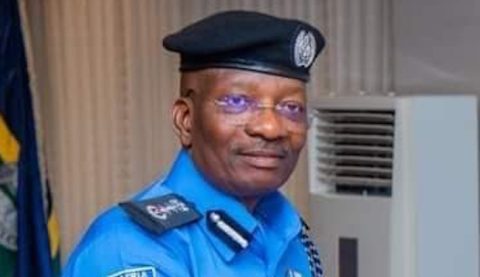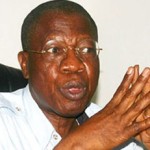FEATURES: State Police: A Desirable Move With Huge Challenges
Articles/Opinion, Featured, Latest Headlines, News Features/Analysis Wednesday, May 15th, 2024
(AFRICAN EXAMINER) – Since the return of democracy in Nigeria in 1999, different parts of the country have had unpleasant experiences in the area of security. This development, naturally, has been a source of worry to politicians and other citizens alike.
To many observers and security experts, state police hold the key to fixing these security challenges.
Proponents of state-controlled police argue that the arrangement will give the governors, as the chief security officers in their states, the true authority to swiftly respond to threats to security and peace in their domains.
In a response to the clamour, President Bola Tinubu on February 15, 2024 set up a committee to explore all available measures to ensure the creation of state police.
Tinubu advised the committee to consult widely to ensure the implications of state police were thoroughly scrutinized with a view to getting the best out of the system.
Since 1999, the wave of political assassination, murders, armed banditry, kidnapping and general eruption of insecurity in Nigeria has put both the government and the populace on the edge.
Hardly one day passes without tales of premeditated crimes and security breaches.
The gale of violent crimes in the country as reported in social and traditional media has made obscene images a daily menu on the various media platforms for Nigerians.
Nigeria Watch, a violence-oriented research platform in Nigeria says no fewer than 168,757 people died in 34,991 violent incidents in Nigeria between 2006 and 2021.
The project is funded by the French Institute for Research in Africa (IFRA-Nigeria) in partnership with the University of Ibadan.
The fatalities maintained an upward trend between 2017 and 2021. In 2021, violence claimed 13,600 lives in Nigeria. Borno State recorded the highest number of fatalities 1,853, followed by Zamfara-1,516, Kaduna-1,342, Niger-935, and Benue State 625.
However, the north-east where Boko Haram operated most witnessed a significant drop in violence, from 3,069 deaths in 2020 to 1,853 in 2021. Meanwhile, the numbers of fatalities surged in Zamfara, Kaduna, and Niger states, where banditry has remained prevalent.
By contrast, Gombe, Ekiti, Bayelsa, Adamawa, and Cross River states recorded the least number of violent deaths.
A lot of Nigerians; politicians, businessmen, students, religious leaders among others have been attacked, killed, maimed or robbed in unresolved circumstances.
This development is deep-rooted in various ethno-religious and political struggles against perceived marginalization, socio-political grievances and other issues.
The heat of insecurity orchestrated by violent and criminal elements, has made experts believe that something novel be done to rejig the exiting security architecture in the country.
Apparently worried by this scenario, the 10th House of Representatives upon inauguration resolved to look into the clause establishing Nigerian Police Force (NPF) with a view to amending it for the establishment of state police.
The sponsor of the Bill and Deputy Speaker of House of Representatives, Rep. Benjamin Kalu, who represents Bende Federal Constituency of Abia State, said the State Police is imperative given the emerging security challenges confronting Nigeria and Nigerians.
According to Kalu, the Bill for the establishment of the State Police across the 36 states of the federation and the Federal Capital Territory has already passed second reading in the House of Representatives.
“Given recent security challenges, establishing State Police has become not just necessary but urgent to empower states in addressing local issues.
“The bill, when enacted, will ensure that policing authority moves from the Exclusive to the Concurrent Legislative List, granting states control over policing.
“It also introduces a robust framework for coordination, accountability, and uniform standards between Federal and State Police, while implementing safeguards to prevent undue Federal interference.
“Additionally, it establishes distinct State Police Service Commissions, delineating their roles and jurisdictions,” Kalu said.
He said that the primary responsibility of the government is the security of life and property of its citizens, saying with the amendment of Section 14 subsection (2) (b) of the 1999 constitution (as amended), the government will be seen to walk the talk on the protection of the sanctity of human life.
The police vs. citizens ratio further lays credence to the need for the recruitment of more policemen.
The International Association of Chiefs of Police prescribes 3.4 police officers for every 1000 residents. The UN recommended ratio is one police officer to almost 450 citizens.
However, Nigeria’s police strength as at August 2023 was just over 370,000 officers for an estimated population of 200 million people.
This insufficient number of policemen has birthed in state or even region-supported para-police groups and vigilantes such the Civilian Joint Task Forces (CJTF) in the north, ostensibly to assist the police.
Down southern `Ebubeagu’ represents the southern eastern governors response to insecurity while `Amotekun’ is its south western version.
The Chairman, House of Representatives Committee on Police Affairs, Rep. Abubakar Yalleman says the establishment of state police will address insecurity at all levels.
“Having a National Dialogue on the issue of Security and State Police initiated by the House of Representatives is evident that our once nascent democracy is becoming more sophisticated, open, transparent and mature.
“We have heard deep perspectives from some of our best minds in the country and abroad, these are people that relate with the citizens at various levels and have cordial relationships with them.
“As legislators, we have taken notes, we have received feedback, and we have learnt, we assure everyone that we will incorporate their views on every constitutional amendment,” he said.
For Dr Goodluck Jonathan, former President of Nigeria, the issue in today Nigeria is not whether to establish state police, but how it should be operated.
Jonathan who chaired the public hearing on the subject said there is no need to debate about state police, adding, issues of state police and Coast Guards were discussed at the 2014 National Conference.
Senate President, Godswill Akpabio; Minister of Police Affairs, Senator Ibrahim Gaidam, the Emeritus Catholic Archbishop of Abuja John Cardinal Onaiyekan and Ooni of Ife, Oba Adeyeye Enitan Ogunwusi are among the proponents of state police.
They hold that operatives of state police will be conversant with the security situations in their immediate environment.
“Some of the challenges faced by the police officers in Nigeria including the fact that they are inadequately trained and live in dilapidated barracks.
“Again, they are poorly paid and that has been associated with corruption, these concerns must be looked into while considerations are being made in establishing state police,’’ Onaiyekan said.
Cardinal Onaiyeka believes firmly too, that there should be checks and balances, including the removal of the immunity clause the governors currently enjoy, which has fuelled abuse of and politicizing political power.
The cleric suggests that the complaints made by the IGP on the challenges of policing, such as welfare, funding, and equipment of the personnel should be addressed before considering state policing.
Akpabio said that for state police to work, it must be free from religious extremism, and ethnic and tribal sentiments.
Mr Martins Idika, former State Commander, Abia State Vigilance Group (ASVG), is of the view that establishing state police will help reduce crime across the country.
According to him, operatives of various states would ensure they put in their best to secure their areas given the fact that security is key to all round development.
“Security is essential for the development of any society. If state police is established, it will certainly raise the bar of security services in the country.
“In Abia, ASVG operatives have done very well because the personnel see themselves as stakeholders in the business of ensuring peace and security of the area.
“If state police is established, it will inspire every state scale up actions to attract investors for development and job creation’, he said.
Prof. Pat Utomi aligns with state police policy as a tool for cascading authorities downwards as is the practice in advanced democracies.
“ I believe state police are a very important part of the process of decentralising authority in Nigeria.
“I live in a university town called Bloomington, Indiana in the United States. The university has its own police (university police) that carry guns.
“When we go outside of the university campus, the town-the city of Bloomington-has its own police and they also carry guns.
“Then, the county in which Bloomington is located also has its county police force.
“There is also the Indiana state police .This model shows that policing is more effective when it is decentralised”, he said.
Unsurprisingly, the Inspector-General of Police (IGP), Kayode Egbetokun, opposed the move to establish state police, insisting that Nigeria was not ripe or mature for such an institution.
Egbetokun said that state police would expose the country to abuse by governors and other big political office holders at the state levels.
Although there are pros and cons to the state police debate, many stakeholders contend that observed deficiencies should be addressed to make it contribute more to making the nation safer as envisaged by Tinubu. (NANFeatures)
By Francis Onyeukwu, News Agency of Nigeria (NAN)
Related Posts
Short URL: https://www.africanexaminer.com/?p=95776





















